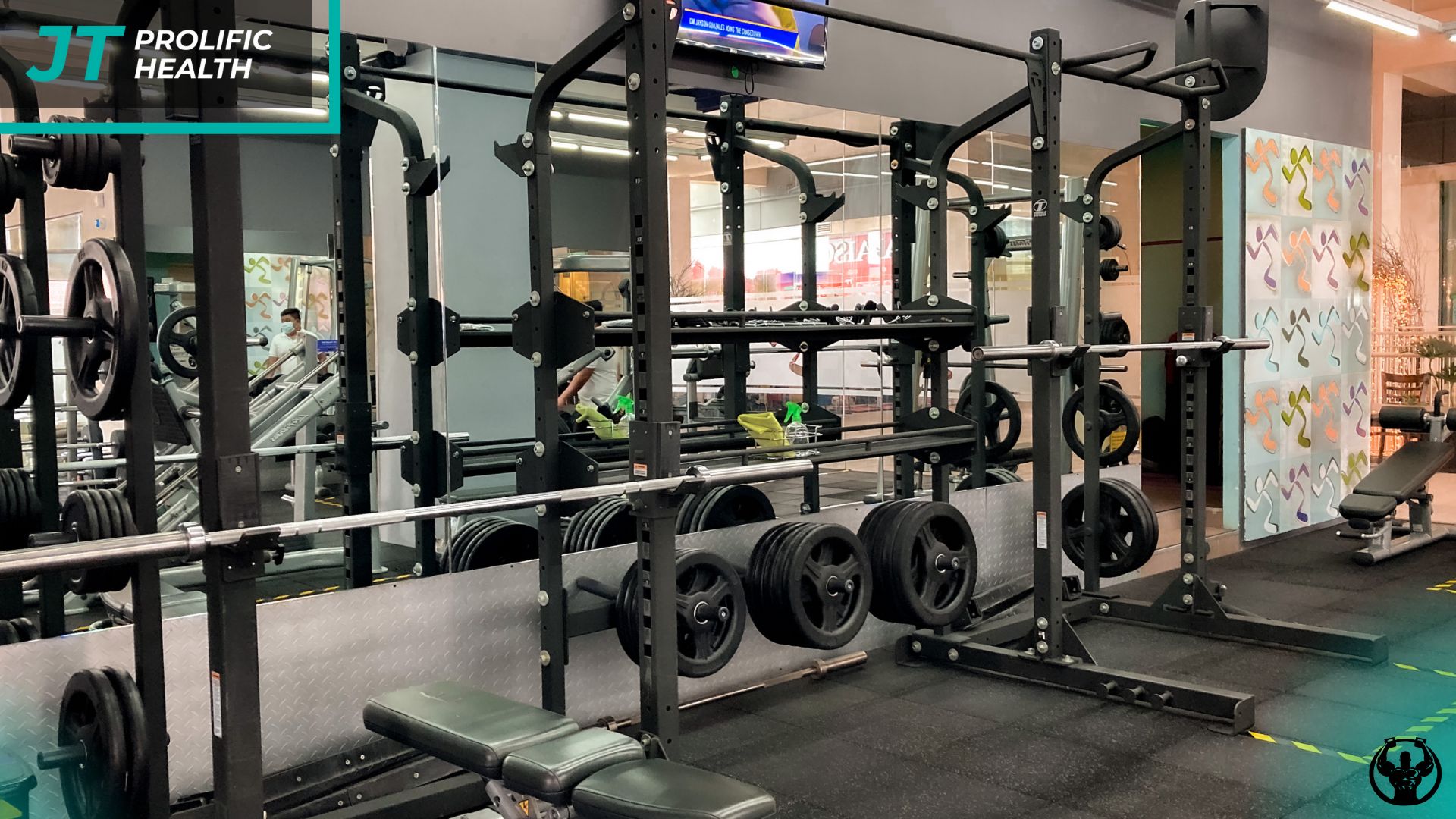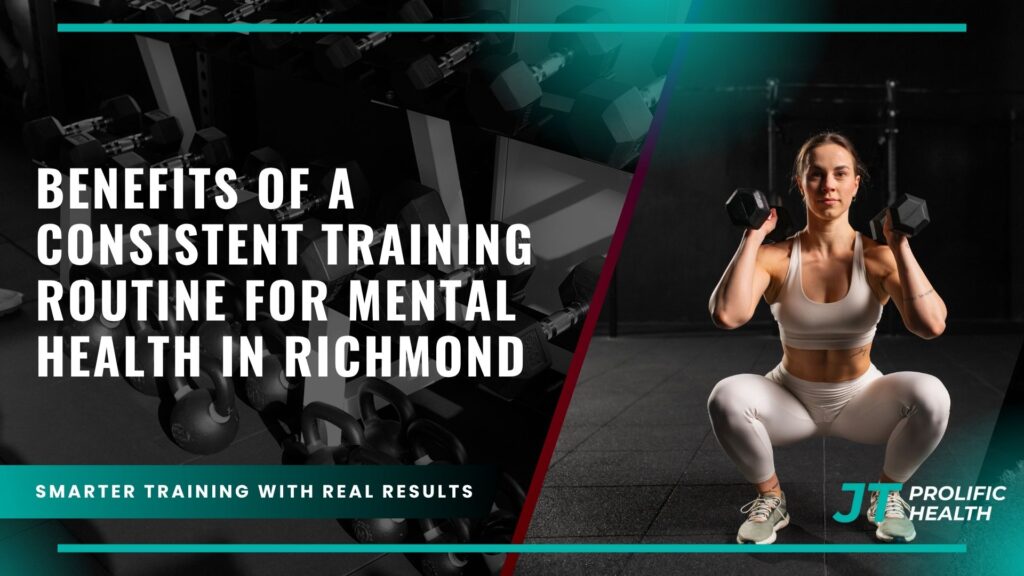Mental health challenges have reached unprecedented levels in Richmond, British Columbia, with many residents struggling to find effective, sustainable solutions for stress, anxiety, and depression. While traditional approaches like therapy and medication play crucial roles in mental health care, an increasingly recognized pathway to psychological well-being lies in the consistent practice of physical exercise and structured training routines.
The connection between physical activity and mental health isn’t merely anecdotal—it’s backed by decades of scientific research demonstrating how regular exercise fundamentally alters brain chemistry, neural pathways, and stress response systems. For Richmond residents navigating the pressures of urban living, work demands, and personal challenges, establishing a consistent training routine offers a powerful tool for enhancing mental resilience and emotional stability.
Richmond’s unique position as a diverse, fast-paced community presents both opportunities and challenges for mental health maintenance. The city’s excellent recreational facilities, parks, and fitness centers provide abundant resources for physical activity, yet many residents find themselves overwhelmed by choices or uncertain about how to begin an effective routine. Understanding the specific mental health benefits that come from consistent training can provide the motivation and framework needed to transform physical activity from an occasional pursuit into a cornerstone of psychological wellness.
The benefits of a consistent training routine extend far beyond physical fitness improvements. Regular exercise acts as a natural antidepressant, anxiety reducer, and stress management tool, offering Richmond residents a proactive approach to mental health that complements other therapeutic interventions. Whether you’re dealing with seasonal affective disorder during Vancouver’s lengthy winters, work-related stress, or general life transitions, a well-structured training routine can provide stability, purpose, and measurable progress toward better mental health.
This comprehensive exploration examines how consistent training routines specifically benefit mental health for Richmond residents, providing practical insights into the neurobiological mechanisms at work, the optimal types of exercise for psychological benefits, and strategies for maintaining long-term adherence to fitness programs designed with mental wellness as a primary goal.
Key Takeaways
- Neurochemical Benefits: Consistent training routines trigger the release of endorphins, serotonin, and dopamine, creating natural mood elevation and stress reduction that can be as effective as medication for mild to moderate depression and anxiety.
- Stress Hormone Regulation: Regular exercise helps regulate cortisol levels, reducing the chronic stress response that contributes to mental health issues and improving overall emotional resilience in Richmond’s fast-paced environment.
- Sleep Quality Improvement: Structured training routines significantly enhance sleep patterns, leading to better emotional regulation, improved cognitive function, and reduced symptoms of anxiety and depression.
- Social Connection Opportunities: Group fitness activities and training programs provide valuable social interaction and community building, combating isolation and loneliness that often contribute to mental health challenges.
- Cognitive Function Enhancement: Regular physical activity improves memory, focus, and executive function while reducing cognitive decline risk, supporting better decision-making and problem-solving abilities.
- Self-Efficacy Building: Achieving fitness goals through consistent training builds confidence and self-esteem, creating positive feedback loops that improve overall mental health and life satisfaction.
- Mindfulness and Present-Moment Awareness: Focused training sessions naturally cultivate mindfulness skills, helping practitioners develop better emotional awareness and stress management capabilities.
- Long-term Mental Health Protection: Consistent exercise routines provide protective factors against future mental health challenges, building resilience that serves individuals throughout their lives.
Overview: The Science Behind Exercise and Mental Health

The relationship between physical exercise and mental health operates through multiple interconnected biological and psychological mechanisms that researchers have extensively documented over the past several decades. When Richmond residents engage in consistent training routines, their bodies initiate a cascade of neurochemical changes that directly impact mood, cognition, and emotional regulation.
At the neurobiological level, regular exercise stimulates the production of brain-derived neurotrophic factor (BDNF), a protein that promotes the growth and maintenance of neurons. This neuroplasticity enhancement is particularly significant for mental health because it supports the brain’s ability to form new neural pathways, recover from stress, and adapt to challenges. For individuals dealing with depression or anxiety, increased BDNF levels can help restore healthy brain function and improve emotional processing capabilities.
The endocrine system also responds dramatically to consistent training routines. Exercise triggers the release of endorphins, often called “feel-good” hormones, which bind to opioid receptors in the brain and create natural pain relief and euphoria. Simultaneously, regular physical activity increases serotonin and dopamine production, neurotransmitters crucial for mood regulation, motivation, and pleasure. These neurochemical changes explain why many people experience immediate mood improvements following exercise sessions.
Richmond’s diverse population can particularly benefit from understanding how exercise affects stress hormone regulation. Chronic stress, common in urban environments, leads to elevated cortisol levels that contribute to anxiety, depression, and cognitive impairment. Consistent training routines help normalize cortisol production patterns, reducing the harmful effects of chronic stress while improving the body’s ability to recover from acute stressors.
Immediate Mental Health Benefits of Regular Training


The immediate mental health benefits of consistent training routines become apparent within minutes of beginning exercise and can last for hours afterward. Richmond residents who establish regular workout schedules often report experiencing what researchers term “acute psychological benefits”—immediate improvements in mood, energy, and mental clarity that occur during and immediately following physical activity.
One of the most pronounced immediate benefits is the reduction of anxiety symptoms. During exercise, the body’s focus shifts to physical performance, creating a natural form of mindfulness that interrupts anxious thought patterns. The rhythmic nature of many exercises, such as running, cycling, or swimming, can induce a meditative state that calms the nervous system and reduces racing thoughts. This effect is particularly valuable for Richmond residents dealing with work stress or social anxiety, as it provides an accessible tool for immediate relief.
Energy levels and mental alertness also improve dramatically during and after exercise sessions. While this might seem counterintuitive—using energy to gain energy—the physiological mechanisms behind this phenomenon are well-established. Exercise increases blood flow to the brain, delivering oxygen and nutrients that enhance cognitive function. Additionally, the release of norepinephrine during physical activity acts as a natural stimulant, improving focus and mental clarity without the crash associated with caffeine or other stimulants.
Sleep quality improvements often begin within the first week of establishing a consistent training routine. Exercise helps regulate circadian rhythms, the body’s internal clock that governs sleep-wake cycles. Richmond residents who struggle with insomnia or poor sleep quality frequently find that regular physical activity helps them fall asleep faster, experience deeper sleep, and wake up feeling more refreshed. Better sleep, in turn, supports emotional regulation and stress management throughout the day.
The social aspects of training also provide immediate mental health benefits. Whether working with qualified fitness professionals or participating in group activities, the human connection inherent in many exercise programs combats feelings of isolation and provides emotional support. These social interactions can be particularly valuable for individuals dealing with depression, as they create opportunities for positive engagement and community building.
Long-term Psychological Resilience Through Consistent Training


The long-term mental health benefits of consistent training routines extend far beyond immediate mood improvements, creating fundamental changes in psychological resilience and emotional regulation that serve Richmond residents throughout their lives. These enduring benefits develop gradually over months and years of regular exercise, building a foundation of mental strength that helps individuals navigate life’s challenges with greater stability and confidence.
Neuroplasticity, the brain’s ability to reorganize and form new neural connections, is significantly enhanced through long-term exercise participation. This increased brain flexibility translates into improved emotional regulation, better stress management, and enhanced cognitive function. Richmond residents who maintain consistent training routines for extended periods often report feeling more emotionally stable and better equipped to handle unexpected challenges or setbacks.
The development of self-efficacy represents another crucial long-term benefit of consistent training. As individuals progress in their fitness journeys, achieving goals and overcoming physical challenges, they build confidence in their ability to tackle difficulties in other life areas. This psychological transfer effect means that the discipline and perseverance developed through regular exercise often translates into improved performance at work, better relationship management, and more effective problem-solving skills.
Consistent training routines also create protective factors against future mental health challenges. Research indicates that individuals with long-term exercise habits show greater resilience to depression, anxiety, and stress-related disorders. The physiological adaptations that occur through regular training—including improved cardiovascular health, better hormone regulation, and enhanced immune function—all contribute to overall mental wellness and reduced vulnerability to psychological distress.
For Richmond residents, the long-term benefits of consistent training extend to cognitive health and aging. Regular exercise has been shown to reduce the risk of cognitive decline, dementia, and age-related mental health issues. The neuroprotective effects of physical activity help maintain brain volume, preserve memory function, and support executive cognitive abilities throughout the lifespan. Understanding how skill development enhances training effectiveness can help individuals maximize these long-term cognitive benefits.
Optimal Training Approaches for Mental Health Benefits
Not all exercise programs provide equal mental health benefits, and understanding the most effective training approaches can help Richmond residents maximize the psychological advantages of their fitness routines. Research has identified specific types of exercise, training intensities, and program structures that offer superior mental health outcomes compared to generic fitness approaches.
Aerobic exercise consistently demonstrates the strongest evidence for mental health benefits, particularly for depression and anxiety reduction. Activities such as brisk walking, jogging, cycling, swimming, and dancing trigger the most significant neurochemical changes associated with mood improvement. For Richmond residents, the city’s excellent trail systems, parks, and recreational facilities provide abundant opportunities for aerobic activities that can be maintained year-round, even during the Pacific Northwest’s rainy seasons.
Strength training offers unique mental health benefits that complement aerobic exercise. Resistance training has been shown to reduce symptoms of depression and anxiety while building self-confidence and body image. The progressive nature of strength training—gradually increasing weights or repetitions over time—provides clear markers of improvement that can boost self-esteem and motivation. Professional strength training guidance can help individuals develop safe, effective programs that maximize both physical and mental health benefits.
Mind-body exercises such as yoga, tai chi, and Pilates combine physical movement with mindfulness practices, offering particularly powerful mental health benefits. These activities teach stress management techniques, improve body awareness, and cultivate present-moment focus that can be applied to daily life challenges. The meditative aspects of mind-body exercises make them especially valuable for individuals dealing with anxiety, chronic stress, or trauma-related mental health issues.
High-Intensity Interval Training (HIIT) has emerged as an efficient approach for busy Richmond residents seeking maximum mental health benefits in minimal time. HIIT workouts can provide significant mood improvements and stress reduction in sessions as short as 15-20 minutes. The intense focus required during HIIT sessions also creates a natural mindfulness experience, interrupting negative thought patterns and providing immediate stress relief.
Frequency and consistency matter more than intensity for mental health benefits. Research suggests that moderate exercise performed regularly provides superior psychological benefits compared to occasional intense workouts. For optimal mental health outcomes, Richmond residents should aim for at least 150 minutes of moderate aerobic activity per week, combined with two or more strength training sessions. This can be broken down into manageable sessions that fit busy schedules while maintaining the consistency necessary for long-term mental health benefits.
Overcoming Common Barriers to Consistent Training
Despite understanding the mental health benefits of consistent training routines, many Richmond residents face significant barriers that prevent them from establishing and maintaining regular exercise habits. Identifying and addressing these obstacles is crucial for creating sustainable fitness programs that support long-term mental wellness.
Time constraints represent the most commonly cited barrier to regular exercise, particularly among working professionals and parents in Richmond’s busy community. However, this barrier often reflects scheduling challenges rather than actual time unavailability. Effective solutions include incorporating shorter, high-intensity workouts, scheduling exercise sessions like important appointments, and finding ways to integrate physical activity into daily routines, such as walking or cycling to work, taking stairs instead of elevators, or conducting walking meetings.
Lack of motivation or energy, particularly among individuals already struggling with mental health challenges, creates a challenging cycle where those who would benefit most from exercise feel least capable of beginning. Breaking this cycle requires starting with extremely manageable goals—perhaps five minutes of walking or gentle stretching—and gradually building intensity and duration. The key is establishing the habit of movement rather than achieving specific fitness targets initially.
Financial concerns about gym memberships or equipment can be addressed through Richmond’s extensive public recreational facilities, free outdoor spaces, and bodyweight exercises that require no equipment. Many effective mental health-supporting exercises, such as walking, jogging, bodyweight strength training, and yoga, can be performed at no cost. Community centers often offer affordable fitness programs, and online resources provide guidance for home-based workouts.
Social anxiety or self-consciousness about exercising in public settings affects many individuals, particularly those new to fitness or dealing with body image issues. Solutions include starting with home-based workouts, exercising during off-peak hours, finding supportive workout partners, or working with qualified personal trainers who can provide encouragement and proper guidance in a supportive environment.
Weather-related barriers, significant in Richmond’s climate, can be overcome through indoor exercise options, appropriate clothing for outdoor activities, and embracing seasonal variety in exercise routines. Richmond’s mild winters still allow for many outdoor activities with proper preparation, while the city’s recreational facilities provide excellent indoor alternatives during inclement weather.
Perfectionism and all-or-nothing thinking often derail exercise routines when individuals miss planned workouts or don’t meet ambitious goals. Developing flexibility and self-compassion around exercise schedules, celebrating small victories, and viewing missed sessions as temporary setbacks rather than failures helps maintain long-term consistency. The mental health benefits of exercise are cumulative, meaning that imperfect consistency still provides significant advantages over inactivity.
Frequently Asked Questions
How quickly can I expect to see mental health improvements from a consistent training routine? Many people experience immediate mood improvements during and after exercise sessions, with noticeable changes in anxiety and stress levels within the first week. More substantial mental health benefits, such as reduced depression symptoms and improved emotional regulation, typically become apparent after 2-4 weeks of consistent training. Long-term benefits continue to develop over months and years of regular exercise.
What type of exercise is best for anxiety and depression? Aerobic exercises like walking, jogging, swimming, and cycling show the strongest evidence for reducing anxiety and depression symptoms. However, strength training, yoga, and mind-body exercises also provide significant mental health benefits. The best exercise is one you enjoy and can maintain consistently over time.
How much exercise do I need for mental health benefits? Research suggests that 150 minutes of moderate aerobic activity per week, combined with two strength training sessions, provides optimal mental health benefits. However, even small amounts of exercise—as little as 10-15 minutes daily—can provide meaningful mental health improvements for Richmond residents just starting their fitness journey.
Can exercise replace medication for mental health conditions? While exercise can be as effective as medication for mild to moderate depression and anxiety, it should not replace prescribed medications without consulting healthcare providers. Exercise works best as part of a comprehensive mental health treatment plan that may include therapy, medication, and lifestyle modifications.
What should I do if I feel too depressed or anxious to exercise? Start with extremely small, manageable activities like a 5-minute walk or gentle stretching. Focus on movement rather than formal exercise initially. Consider working with a qualified trainer who understands mental health challenges and can provide appropriate support and modifications.
How do I maintain motivation for long-term exercise consistency? Set realistic, achievable goals, track your progress, find activities you enjoy, exercise with others for accountability, and focus on how exercise makes you feel rather than just physical outcomes. Celebrating small victories and being flexible with your routine helps maintain long-term motivation.
Are there specific exercises that help with stress management? Mind-body exercises like yoga, tai chi, and Pilates are particularly effective for stress management because they combine physical movement with mindfulness practices. Deep breathing exercises, gentle stretching, and rhythmic activities like walking or swimming also provide excellent stress relief.
How does exercise help with sleep problems related to mental health? Regular exercise helps regulate circadian rhythms, reduces stress hormones, and promotes physical tiredness that supports natural sleep patterns. However, vigorous exercise should be completed at least 3-4 hours before bedtime to avoid interference with sleep onset.
Conclusion
The benefits of a consistent training routine for mental health in Richmond extend far beyond simple physical fitness improvements, offering a powerful, accessible tool for enhancing psychological well-being and building long-term emotional resilience. From the immediate mood-boosting effects of endorphin release to the profound neuroplastic changes that occur with sustained exercise participation, regular physical activity provides scientifically-backed mental health benefits that can complement and enhance other therapeutic interventions.
Richmond residents have access to exceptional resources for developing and maintaining exercise routines that support mental wellness, from the city’s extensive park systems and recreational facilities to professional fitness services and community programs. The key to maximizing these mental health benefits lies in finding sustainable, enjoyable forms of physical activity that can be maintained consistently over time, rather than pursuing perfect or overly ambitious exercise regimens.
Understanding the specific mechanisms through which exercise improves mental health—including neurochemical changes, stress hormone regulation, sleep enhancement, and social connection opportunities—can provide the motivation and framework needed to prioritize physical activity as an essential component of mental wellness. Whether dealing with anxiety, depression, chronic stress, or simply seeking to build greater emotional resilience, a well-designed training routine offers proven benefits that improve quality of life and long-term psychological health.
The journey toward better mental health through consistent training doesn’t require perfection or extraordinary athletic ability. Small, sustainable changes in daily activity levels can yield significant psychological benefits, creating positive feedback loops that support both physical and mental wellness. For Richmond residents ready to harness the mental health benefits of exercise, the path forward involves starting where you are, using what you have, and taking consistent action toward a more active, mentally healthy lifestyle.



